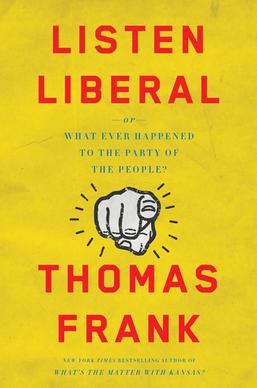According to the Center for Responsive Politics, the 2020 election cost in excess of $14B. To put that figure in perspective, in 2020, the year of a global pandemic, the Centers for Disease Control spent a total of $1.2B for chronic disease prevention and control. The $14B price tag for politics in 2020 begs an interesting question: what did this money buy?
Pfizer is one of the private pharmaceutical companies competing to develop a vaccine for Covid-19. According to the industry news outlet Health Leadership Media, Pfizer netted $16.2B in profits in 2019. That same year Pfizer contributed $2.8M to political campaigns and $11M lobbying. For every dollar Pfizer spent on policymakers, it netted $1,173. That is a greater than 100,000 per cent return on investment. Given those margins, politics is among the most fruitful investments anywhere in the global marketplace.
To be sure, political outcomes are not Pfizer’s only investment. They also produce pharmaceuticals. Nevertheless, the fact is that with a very small investment, Pfizer has been able to purchase an extraordinarily generous regulatory environment and rates of profit unparalleled elsewhere in the industrialized world. $13.8M may seem like a lot of money. It is not. $16.2B? That’s a lot of money.
Pfizer is not exceptional. A quick spin around the Center for Responsible Politics website will show just how unexceptional Pfizer is. From the defense industry, to the incarceration industry, to the petroleum industry, to the agriculture industry, investors are spending billions and billions of dollars buying policy. This makes politics among the most attractive investments anywhere in the global market. In other words, politics is a commodity. But what is a commodity?
According to William Stanley Jevons, one of the founders of modern neoclassical economics, a commodity is any surface form of appearance whose value arises from its relationship to all other commodities (Theory of Political Economy, pp. 37-74). According to Jevons, a surface form of appearance, or utility, need not take a material form at all. This, of course, is the same definition of the commodity that Karl Marx used in his Capital. From there, however, Jevons’ and Marx’s discussions of the commodity diverge. So, for example, Jevons expressed deep concern over investors who fail to disclose the full nature of their product, who maintain trade secrets, or who hold more or less of their product than they let on.
There must be no conspiracies for absorbing and holding supplies to produce unnatural ratios of exchange. Were a conspiracy of farmers to withhold all corn from market, the consumers might be driven, by starvation, to pay prices bearing no proper relation to the existing supplies, and the ordinary conditions of the market would be thus overthrown.
WS Jevons, Theory of Political Economy, p. 86.
Jevons considered secrets and speculation to be “against the public good” (Theory of Political Economy, p. 87). Marx, by contrast, saw in the commodity form itself, even when functioning strictly by the rules, in the open, completely unsullied by speculation, a deception on the highest order. As Jevons himself affirmed, the commodity is not what it appears to be on its surface. Nor is it what Jevons thought it to be. So, what is it?
A commodity appears a t first sight a n extremely obvious, trivial thing. But its analysis brings out that it is a very strange thing, abounding in metaphysical subtleties and theological niceties. So far as it is a use-value, there is nothing mysterious about it, whether we consider it fro m the point of view that by its properties it satisfies human needs, or that it first takes on these properties as the product of human labour. . . . Whence, then, arises the enigmatic character of the product of labour, as soon as it assumes the form of a commodity? Clearly it arises from this form itself. The equality of the kinds of human labour takes on a physical form in the equal objectivity of the products of labour as values; the measure of the expenditure of human labour-power by its duration takes on the form of the magnitude of the value of the products of labour.
K Marx, Capital, volume 1, pp. 163,164.
This, for Marx, meant that “the commodity-form, and the value-relation of the products of labour within which it appears, have absolutely no connection with the physical nature of the commodity and the material relations arising out of this” (K Marx, Capital, volume 1, pp. 165). The deception was not, as Jevons believed, in trade secrets or conspiracy. The deception was in the very form itself. “It is nothing but the definite social relation between men themselves which assumes here, for them, the fantastic form of a relation between things” (Ibid.).
Politics is a commodity. But what does this mean? It means, does it not, that its surface forms of appearance — laws and regulations and regulatory agencies and departments and institutions — are not what they appear to be. These surface forms mediate the accumulation, circulation, and expansion of value; value, which, if we are to believe Marx, is the abstract form taken by labor once labor itself is transformed into a commodity.
To return to our original example, Pfizer appears to be manufacturing pharmaceuticals. It appears to be purchasing political goods in order to facilitate the manufacture of pharmaceuticals. If Marx is to be believed, however, Pfizer is in fact expanding value for shareholders. Abstract value is the underlying socially generalized form both of the political goods it purchases and the pharmaceutical goods it produces. The deception is not exceptional. It is how the commodity works. We focus on the commodity’s surface form of appearance. Its true value lies beneath this surface.
What is this value? If we are correct, it is as much as 1000 times more than the value invested in it, perhaps as much as $14T; which is to say, two thirds of the entire US GDP (which is roughly $22T).
Why do elections cost so much? Why are we ready to spend so much electing “public servants” to “public” office? Why $14B? If we are right, and what we are purchasing here is an expansion of value on this unprecedented scale, is it any wonder that we spend so much on elections?
From this vantage point, it is clear that the biggest prize is the US government itself; all of its agencies and institutions, its governing and regulatory agencies, its military, and its people. For this reason, it might be supposed that campaign finance reform is the most important issue facing US citizens, more important even than climate change. Climate change mitigation cannot proceed with sufficient enough speed if those charged with regulating carbon are driven by a marginal product that is dependent on carbon. (Exxon Mobile contributed $2.4M to candidates and spent $9.7M on lobbying in 2019. It earned $255.6B.)
Campaign finance reform is important. But we should not think about campaign finance reform independently from the capitalist social formation in which it would be implemented. Eliminating the benefits investors can enjoy from purchasing politics may place downward pressure on the marginal product investors can anticipate, but it will by no means eliminate the commodity character of the political or, more importantly, the commodity character of the social. Too often campaign finance reform is addressed in isolation from the commodified character of society as a whole, as though removing the deception in this one corner will prove sufficient. Campaign finance report might instead be publicized as an especially noteworthy example of commodification more generally; commodification that includes health, education, housing, clean water and air, race, gender, sexual preference, and, indeed, labor itself. In capitalism, all of these are commodified; all are surface forms of appearance mediated by abstract value. The deception is not peculiar to politics. It is everywhere. Nevertheless, politics offers an especially egregious example of how commodification works, to our peril.


